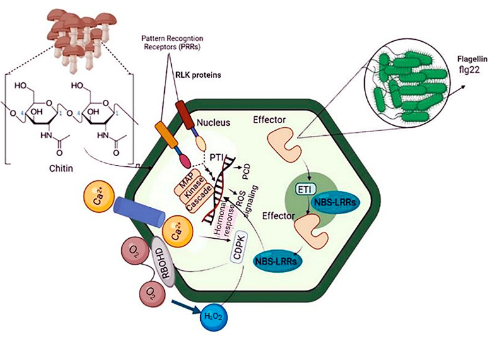Study Reveals Unexpected Link Between Plant Immunity and Human Brain Health
A recent study conducted by researchers at the University of Kentucky’s Martin-Gatton College of Agriculture, Food, and Environment has uncovered a surprising biochemical connection between plant immune responses and human neurological health.
Published in Nature Plants and funded by the U.S. National Science Foundation and the National Institute of Food and Agriculture (USDA), the research highlights shared metabolic pathways between plants and humans, particularly in the regulation of vitamin B6—a vital nutrient involved in immune function and neurological conditions such as pyridoxine-dependent epilepsy.
Key Findings: A Common Pathway in Plants and Humans
The study focuses on lysine catabolism, a metabolic process essential for breaking down nutrients. Lysine, an amino acid crucial for protein synthesis, collagen formation, calcium absorption, and enzyme production, follows a similar breakdown pathway in both plants and humans.
Researchers discovered that plants produce Δ1-piperideine-6-carboxylic acid (P6C) during lysine metabolism. This mirrors a process in humans, where elevated P6C levels disrupt vitamin B6 homeostasis, contributing to epilepsy. In plants, excess P6C also disturbs B6 balance, weakening their systemic immune response.
“Our findings highlight deep evolutionary processes that shape biochemical signaling across life forms,” said Dr. Huazhen Liu, the study’s lead researcher and a postdoctoral scholar in plant pathology.
Evolutionary Origins and Broader Implications
The research also suggests that certain enzymes involved in lysine and proline metabolism in plants may have originated from bacteria through horizontal gene transfer. Over time, these enzymes evolved to regulate vitamin B6 levels and neutralize reactive metabolic intermediates—high-energy molecules that can cause cellular damage.
Beyond plant immunity, this discovery reinforces the crucial role of diet in human health. Vitamin B6, found in many plant-based foods, supports neurotransmitter function, immune response, and metabolism. The study suggests that disruptions in amino acid metabolism could have widespread consequences across biological systems, linking plant and human health in unexpected ways.
Dietary Implications and the Role of Plant-Based Nutrition
“This research underscores the importance of a plant-based diet as a natural source of essential vitamins and amino acids,” said Dr. Pradeep Kachroo, a professor of plant pathology and expert in systemic immunity. “Rather than relying on excessive supplementation, a well-balanced diet rich in plant-based foods remains the best way to maintain nutritional health.”
By uncovering shared metabolic pathways between plants and humans, this study opens new possibilities for improving both crop resilience and human nutrition, offering insights that could shape future approaches to health and agriculture.







